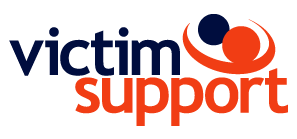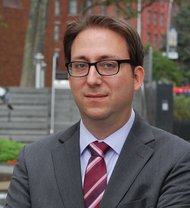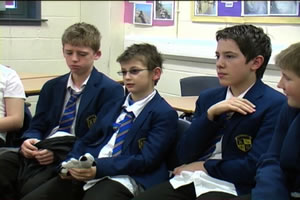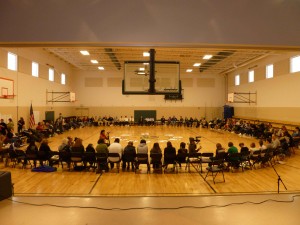News & Announcements
- Details
- Written by Joshua Wachtel
Today I'm reposting a comment by IIRP professor Alia Sheety in response to Lisa Rea's commentary (read the original post here) regarding the ongoing Penn State sexual abuse story.
I totally agree with the need to ask different questions. I also believe that through the media we could bring others to the awareness of asking different questions.
As we witness in this case, a punitive approach was adopted. Still, what bothered me most is ignoring the needs of the victims. Thanks for remembering the victims' needs and for bringing this forward. It is time to respond to those needs – even 15 years later.
- Details
- Written by Joshua Wachtel
 It looks like the Restorative Justice Council's Practitioners Register is growing. To view the register click here. There appear to be about 20 accredited members and another 40 or so associate members. Associate membership is open to anyone who agrees to the RJC Practitioner Code of Practice. This document states:
It looks like the Restorative Justice Council's Practitioners Register is growing. To view the register click here. There appear to be about 20 accredited members and another 40 or so associate members. Associate membership is open to anyone who agrees to the RJC Practitioner Code of Practice. This document states:
Restorative Processes bring those harmed by crime and conflict, and those responsible for the harm, into communication, enabling everyone affected by a particular incident to play a part in repairing the harm and finding a positive way forward.
- Details
- Written by Joshua Wachtel
From Nova Studios web site:
- Details
- Written by Joshua Wachtel
Lisa Rea has this opinion piece today at RJOnline which highlights a need for the media to start asking different questions which could ultimately have a bearing on our legal system.
 As the story comes out in more detail about the alleged sexual abuse of children by Jerry Sandusky, former assistant football coach at Penn State, the coverage of the story seems to be more about the actions of veteran coach Joe Paterno--his resignation or the university's decision to fire him.
As the story comes out in more detail about the alleged sexual abuse of children by Jerry Sandusky, former assistant football coach at Penn State, the coverage of the story seems to be more about the actions of veteran coach Joe Paterno--his resignation or the university's decision to fire him.
- Details
- Written by Joshua Wachtel
 Vidia Negrea, Director of CSF HungaryFrom a new eForum article by Vidia Negrea, Director of Community Service Foundation of Hungary, and IIRP affiliate, about a restorative process used in the transition process for releasing a prisoner who had committed murder:
Vidia Negrea, Director of CSF HungaryFrom a new eForum article by Vidia Negrea, Director of Community Service Foundation of Hungary, and IIRP affiliate, about a restorative process used in the transition process for releasing a prisoner who had committed murder:
The first phase of a three-phase intervention plan involved preparing and running a circle meeting with János and his family to prepare for his temporary release. This hybrid restorative circle came out of my experience with FGDM and less formal restorative circles and was designed to meet the needs of prison officials, the prisoner and his family.
I held preparatory meetings with János in the prison, his partner Mária, their two children and Mária’s parents in her family home. János’s son, struggling with tears, talked about how he had been stigmatized as a small child for what his father had done and how hard it was for him not to respond with violence. Mária’s mother summarized how the family related to János: “I condemn what he did, he committed a crime. But János is a kind man, and we would be happy to have him with us again, as long as his intentions are good. The children need him, and so does Mária, who still loves him.” All five agreed to attend the circle meeting.
- Details
- Written by Joshua Wachtel
 Udi Ofer, photo by Alberto MoralesThe New York Times "SchoolBook" section – "News, data and conversation about schools in New York City" – has an opinion piece about the need for schools to report carefully on who they suspend for what and how frequently. The author, Udi Ofer, writes, "Figures released last week by the City Department of Education show that city schools suspended 5-year-olds at least 35 times and 6-year-olds at least 107 times in the last year alone. That is 142 students who are not old enough to pick out their own clothes but were deemed a big enough threat that they needed to be suspended."
Udi Ofer, photo by Alberto MoralesThe New York Times "SchoolBook" section – "News, data and conversation about schools in New York City" – has an opinion piece about the need for schools to report carefully on who they suspend for what and how frequently. The author, Udi Ofer, writes, "Figures released last week by the City Department of Education show that city schools suspended 5-year-olds at least 35 times and 6-year-olds at least 107 times in the last year alone. That is 142 students who are not old enough to pick out their own clothes but were deemed a big enough threat that they needed to be suspended."
He goes on to suggest that suspending students may not be a cut-and-dried process implemented fairly, and finally suggests alternative means of discipline, including restorative justice:
- Details
- Written by Joshua Wachtel
The Week of November 13, 2011 Is Restorative Justice Week
According to this piece, "'Re-visioning Justice,' the theme for this year's Restorative Justice Week ... calls upon Canadians to envision how a restorative justice approach can be applied and implemented within a broader social justice context. It is a challenge to those who work in the health care, educational, justice, correctional and all other systems and/or levels of government, to be creative and innovative in looking at 'justice' through a restorative justice lens."
A National Restorative Justice Symposium will take place in Kamloops, British Columbia, November 13-15, 2011.
For an up to date google news search of Restorative Justice Week Canada related events click here.
And Restorative Justice Online had this page packed full of information.
- Details
- Written by Joshua Wachtel
"Most striking, students showed higher gains in math achievement when their teachers reported frequent conversations with their peers that centered on math, and when there was a feeling of trust or closeness among teachers. In other words, teacher social capital was a significant predictor of student achievement gains above and beyond teacher experience or ability in the classroom. The effects of teacher social capital on student performance were powerful.”
This is a quotation by Dr. Carrie Leana in an Education News piece, "Julia Steiny: Terrific School Morale Improves Math Scores," which you can read in full here. Feel free to discuss in the comments.
- Details
- Written by Joshua Wachtel
 Circle discussion at Endeavor High SchoolAs Hull Centre for Restorative Practice in the UK just completed its Restorative Practice Conference, I'll offer a look back at this eForum story by Laura Mirsky from two years ago reporting on the city's progress toward its goal of becoming the world's first restorative city.
Circle discussion at Endeavor High SchoolAs Hull Centre for Restorative Practice in the UK just completed its Restorative Practice Conference, I'll offer a look back at this eForum story by Laura Mirsky from two years ago reporting on the city's progress toward its goal of becoming the world's first restorative city.
Hull, UK, led by the Hull Centre for Restorative Practices (HCRP) and the International Institute for Restorative Practices (IIRP), is endeavoring to become a “restorative city.” The goal is for everyone who works with children and youth in Hull, one of England’s most economically and socially deprived cities, to employ restorative practices.
- Details
- Written by Joshua Wachtel
 IIRP alum Ben Emery is working with the Colorado Restorative Justice Council and blogs at RestorativeJusticeColorado.org. He writes that he kept hearing about good work happening by the Longmont High School Restorative Justice Team, where teenagers are "facilitating circles, organizing pre-conferences, and even training younger students." When he talked to students about recording an interview about the blog, Sophomore Savannah Iverson stepped in and offered to write a 3-part series. From part 1:
IIRP alum Ben Emery is working with the Colorado Restorative Justice Council and blogs at RestorativeJusticeColorado.org. He writes that he kept hearing about good work happening by the Longmont High School Restorative Justice Team, where teenagers are "facilitating circles, organizing pre-conferences, and even training younger students." When he talked to students about recording an interview about the blog, Sophomore Savannah Iverson stepped in and offered to write a 3-part series. From part 1:
Before I joined the RJ team, I often played supporting roles—whether it was in drama, basketball or even group projects in class. I didn’t really want to speak out or be the leader. I would rather just sit back unless I really needed to. After I joined and started being a more active member, I notice that I automatically took on that leadership role, and I feel confident that I am a good leader. I feel like I know what I am doing, and I recognize what needs to happen and figure out what needs to be done. I am able to analyze the situation better, and think about different outcomes. I am really good at giving options, soliciting feedback from my peers and making sure that everyone has a voice and say. As a group, we usually end up finding a good outcome, and the group as a whole decides what is best. It’s extremely similar to a circle process, the wisdom of the group is really important.

Restorative Works Year in Review 2024 (PDF)
All our donors are acknowledged annually in Restorative Works.
